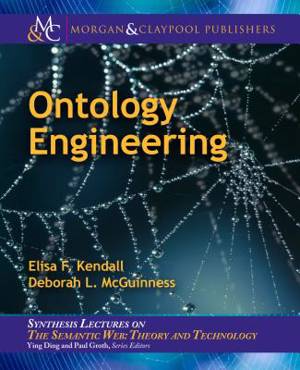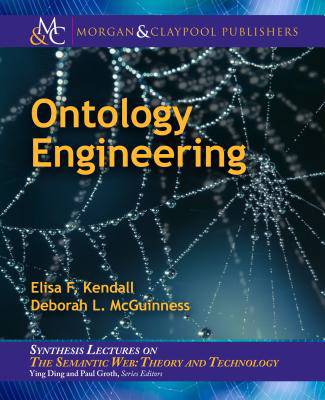
- Afhalen na 1 uur in een winkel met voorraad
- Gratis thuislevering in België vanaf € 30
- Ruim aanbod met 7 miljoen producten
- Afhalen na 1 uur in een winkel met voorraad
- Gratis thuislevering in België vanaf € 30
- Ruim aanbod met 7 miljoen producten
Omschrijving
This book is designed to provide the foundations for ontology engineering. It is motivated by the Ontology 101 tutorial given for many years at the Semantic Technology Conference and then later from a semester-long university class. The book can serve as a course textbook or a primer for all those interested in ontologies.
Ontologies have become increasingly important as the use of knowledge graphs, machine learning, natural language processing (NLP), and the amount of data generated on a daily basis has exploded. As of 2014, 90% of the data in the digital universe had been generated in the preceding two years, and the volume of data was projected to grow from 3.2 zettabytes to 40 zettabytes in the following six years. The very real issues that government, research, and commercial organizations are facing in order to sift through this amount of information to support decision-making alone mandate increasing automation. Yet, the data profiling, NLP, and learning algorithms that are ground-zero for data integration, manipulation, and search provide less-than-satisfactory results unless they utilize terms with unambiguous semantics, such as those found in ontologies and well-formed rule sets. Ontologies can provide a rich schema for the knowledge graphs underlying these technologies as well as the terminological and semantic basis for dramatic improvements in results. Many ontology projects fail, however, due at least in part to a lack of discipline in the development process.
Specificaties
Betrokkenen
- Auteur(s):
- Uitgeverij:
Inhoud
- Aantal bladzijden:
- 120
- Taal:
- Engels
- Reeks:
Eigenschappen
- Productcode (EAN):
- 9781681733104
- Verschijningsdatum:
- 26/04/2019
- Uitvoering:
- Hardcover
- Formaat:
- Genaaid
- Afmetingen:
- 190 mm x 235 mm
- Gewicht:
- 430 g

Alleen bij Standaard Boekhandel
Beoordelingen
We publiceren alleen reviews die voldoen aan de voorwaarden voor reviews. Bekijk onze voorwaarden voor reviews.











